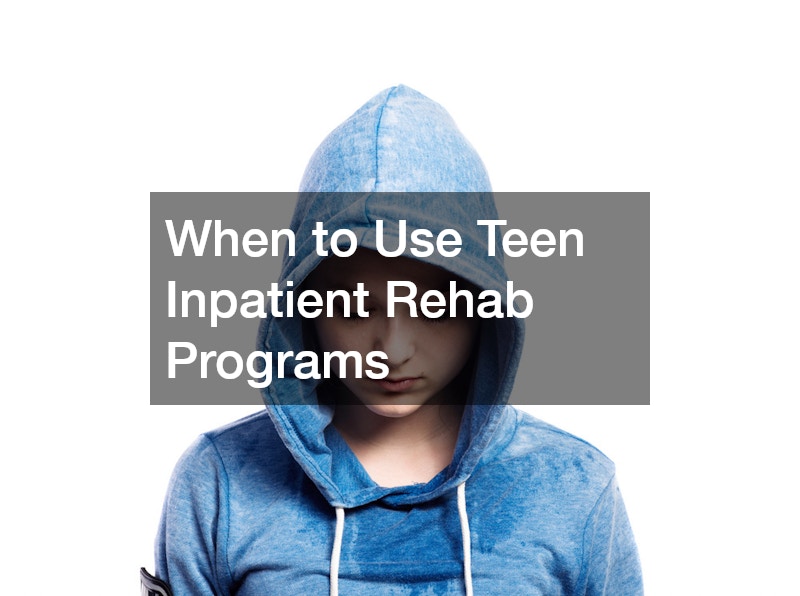

Teen inpatient rehab programs offer comprehensive treatment for adolescents struggling with substance abuse, mental health disorders, or behavioral issues. Deciding whether a teen needs inpatient rehab is a critical decision that can significantly impact their recovery and well-being. Knowing when to use these programs is essential for parents, guardians, and caregivers seeking the best possible care for their teens.
Here are some key indicators that it might be time to consider an inpatient rehab program.
1. Severe Substance Abuse
One of the primary reasons to consider inpatient rehab is when a teen is dealing with severe substance abuse. If an adolescent has been abusing drugs or alcohol for an extended period, has developed a dependency, or has experienced repeated failed attempts to quit, inpatient care may be necessary. In these cases, the structure and support of a residential program are crucial for detoxification, therapy, and long-term recovery.
Inpatient rehab provides a controlled environment free from the temptations and triggers that may be present at home, school, or in social settings. It also ensures that teens receive 24/7 supervision, which is vital for managing withdrawal symptoms and preventing relapse.
2. Co-Occurring Mental Health Disorders
Many teens dealing with substance abuse also suffer from co-occurring mental health disorders such as depression, anxiety, or PTSD. In these instances, inpatient rehab programs can provide dual diagnosis treatment, addressing both the substance abuse and underlying mental health conditions simultaneously. Inpatient care is particularly beneficial when the mental health disorder exacerbates the substance abuse or vice versa.
The comprehensive nature of inpatient programs allows teens to receive therapy, medication management, and coping skills training in a supportive and structured environment.
3. Failure of Outpatient Treatment
Outpatient programs can be effective for teens in the early stages of substance abuse or those with mild issues. However, if outpatient treatment has not led to significant improvement, it may be time to consider inpatient rehab. Inpatient programs offer more intensive therapy, a break from negative influences, and a safe space for teens to focus on recovery without distractions.
4. Dangerous or Self-Harm Behaviors
If a teen engages in dangerous behaviors, such as self-harm, suicidal ideation, or reckless actions, inpatient rehab can provide the safety and care they need. The constant supervision and access to professional support help reduce the risk of harm while providing therapeutic interventions to address the root causes of these behaviors.
When a teen’s safety, well-being, and long-term recovery are at risk, these programs offer the structure, supervision, and treatment needed to help them heal and regain control of their lives.